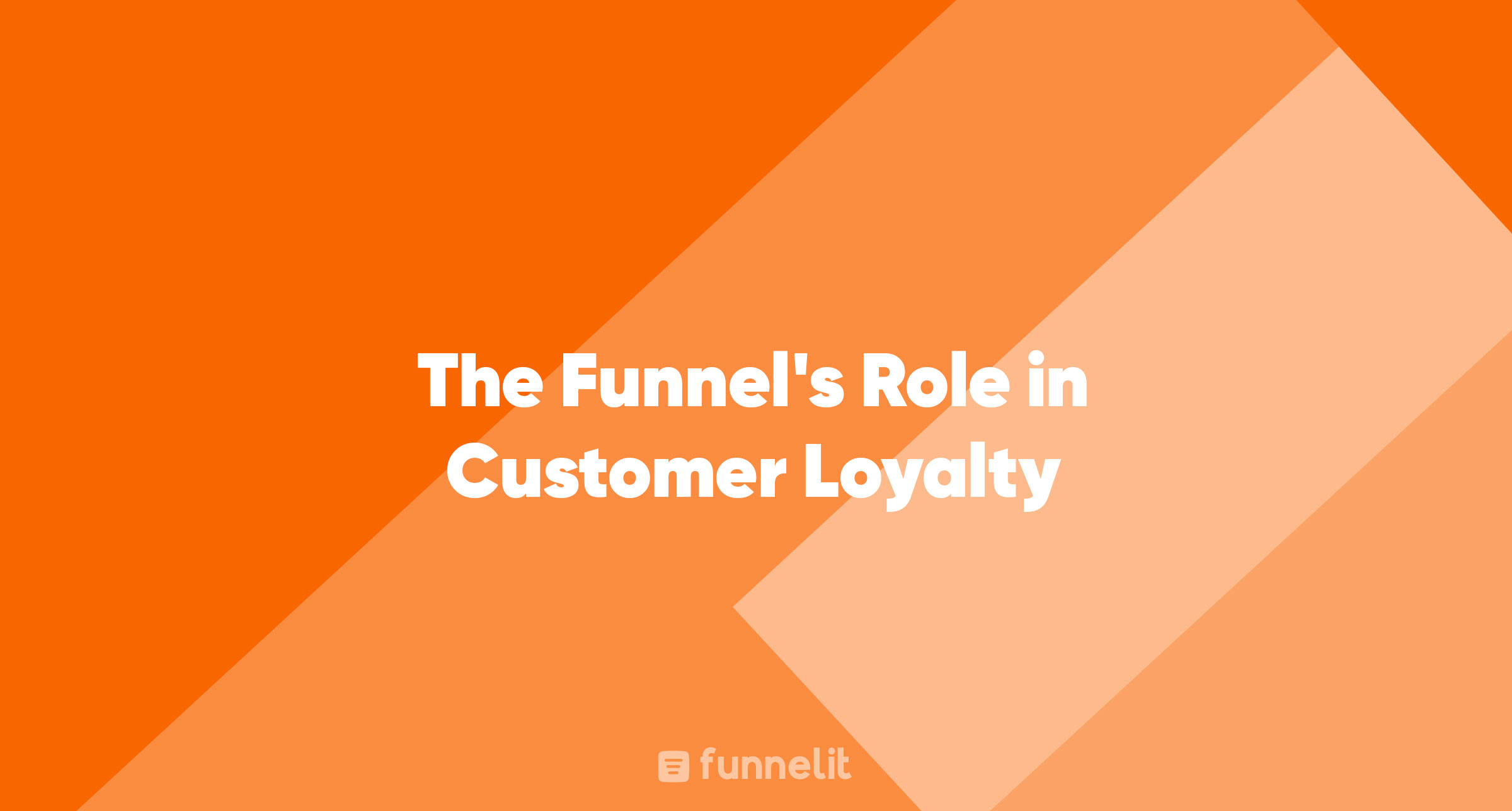Building customer loyalty is an integral part of any business's success. It's not just about attracting new customers but also retaining the existing ones and turning them into brand advocates. The marketing funnel plays a crucial role in this process. Let's dive deep into understanding the funnel's role in customer loyalty.
Understanding Customer Loyalty
Customer loyalty is the result of consistently positive emotional experiences, physical attribute-based satisfaction, and perceived value of an experience, which includes the product or services. It's about creating a bond with your customers, which is crucial in building trust, driving repeat purchases, and improving metrics like average order value (AOV) and return on investment (ROI).
The Marketing Funnel
The marketing funnel, also known as the sales funnel or purchase funnel, is a model that represents the customer's journey from the first interaction with your brand to the final purchase. It's a visual representation of the steps a customer goes through before deciding to buy a product or service. It starts with the awareness stage, moves to the interest phase, then to the decision stage, and finally, the action phase where the purchase happens.
Why Customer Loyalty Matters
Customer loyalty is vital for several reasons. Loyal customers often have a higher lifetime value than new customers because they are more likely to make repeat purchases. They are also less likely to be swayed by competitors, making them more reliable sources of revenue.
Creating a Marketing Funnel
Creating a marketing funnel involves identifying the different stages that a customer goes through in their journey with your brand. These stages typically include awareness, interest, consideration, purchase, and loyalty. Each stage requires a different approach and strategy to effectively guide the customer to the next stage.
Different Types of Marketing Funnels
There are several different types of marketing funnels, including the attraction funnel, the maturity funnel, and the loyalty funnel. The attraction funnel focuses on increasing brand visibility and attracting potential customers, the maturity funnel aims to build trust and interest among potential customers, while the loyalty funnel focuses on converting customers into loyal advocates for your brand.
Digital Funnels: The New Age Marketing Tool
In the digital age, the traditional marketing funnel has evolved into a more complex, multi-channel and multi-device entity, often known as the digital marketing funnel. It includes stages like discovery, consideration, conversion, and advocacy, which reflect the more varied and complex journey customers now undertake when making a purchasing decision.
The Loyalty Funnel: The Key to Customer Retention
The loyalty funnel is an extension of the marketing funnel that focuses on the post-purchase experience of customers. It includes stages like re-purchase, loyalty, and advocacy. The goal of the loyalty funnel is to turn one-time customers into repeat customers and then into brand advocates, thereby increasing customer lifetime value and driving business growth.
Strategies to Enhance Brand Loyalty
There are several strategies that businesses can employ to enhance brand loyalty. These include creating a personalized customer experience, offering loyalty programs, maintaining a consistent brand message across all channels, and continually engaging and communicating with customers.
The Impact of Customer Loyalty on Sales
Customer loyalty has a significant impact on sales. Loyal customers are more likely to make repeat purchases and recommend the brand to others, leading to increased sales. Additionally, retaining existing customers is usually more cost-effective than acquiring new ones, making customer loyalty an essential aspect of business profitability.
Conclusion
In conclusion, the marketing funnel plays a crucial role in building customer loyalty. It provides a roadmap for guiding customers through their journey with your brand, from the first interaction to becoming loyal advocates. By understanding this process and using effective strategies at each stage of the funnel, businesses can enhance customer loyalty, boost sales, and drive business growth.
In the ever-competitive business landscape, prioritizing customer loyalty is not just an option but a necessity. By leveraging the power of the marketing funnel, businesses can create a loyal customer base that not only contributes to consistent revenue but also acts as brand advocates, promoting the brand among their network.
